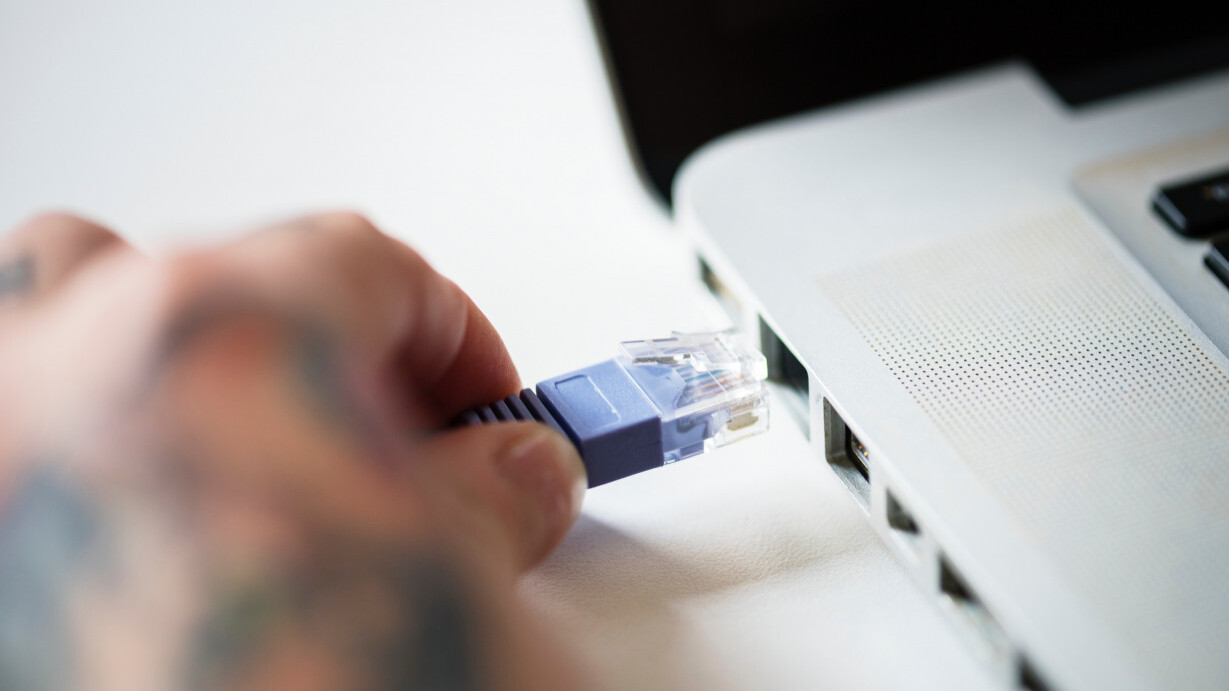
It’s said that moving — along with getting divorced, or contracting a life-threatening illness — is one of the most stressful events you’re likely to experience in your lifetime. Two weeks into my move, I’m starting to feel the pressure.
No, I’m not talking about the boxes piled up around my ankles. The fact that I still haven’t found my cutlery and thus have been using and re-washing the same knife and fork isn’t causing me anxiety. I’m talking about the Internet.
I’m a journalist. My wife is a publicist. We both work from home and depend wholly on the Internet to do our jobs. And yet, it’ll take a good month for our chosen ISP to send out an engineer to install a broadband connection.
As an interim measure, we’ve been forced to grab a 4G router and an all-you-can-eat data SIM card. The latter comes with a pretty big caveat: the first 20GB comes at full 4G speed, but after that, you’re throttled to a measly 384 Kbps. That’s better than dial-up, but only barely.
20GB isn’t a lot, especially when shared between two people over the course of a month. Consequently, we’re forced to be a lot more conservative with how we use the Internet.
That sounds pretty hellish, especially in 2019, where the Internet is ubiquitous and almost essential. Since 2009, the amount of time we spend online each day has almost doubled from 3 hours a day to 5.9 hours. Cutting down, therefore, feels a bit like going back in time.
But honestly? It’s actually pretty nice. There’s a lot to be said about going on an involuntary digital detox.
I’m more mindful about how I actually use the Internet, and tend to browse with a greater sense of consciousness than I otherwise would. This newfound online thriftiness means I’m more focused. I’m less prone to go down a YouTube rabbit hole, for example, that would see me aimlessly clicking on suggested video after suggested video.
An unexpected bonus is that being forced to unplug has really been beneficial for our relationship. We spend more time together doing stuff that doesn’t involve the Internet, like sitting on the couch to watch a Blu-Ray movie over a bottle of red wine. Last night, we watched The Five Year Engagement. Tonight it’ll be the first Inbetweeners movie.
Interestingly enough, A 2014 Pew survey found that 18 percent of US adults felt the Internet was responsible for weakening relationships. While I wouldn’t go that far, I’d certainly suggest that it’s gradually eroded barriers between home and work lives, and that certainly isn’t a good thing in a marriage. Being forced to unplug from work is hugely beneficial.
I’d like to pretend that this is some kind of newfound revelation, but it’s not. Plenty of people have discovered the benefits of a more limited relationship with the Internet long before I did.
Some of my friends are observant Orthodox Jews. The Torah prohibits 39 activities during the holy day of rest, among them are “writing” and “erasing.” Try using the Internet without doing either.
During the Sabbath, they “go dark,” disconnecting themselves from almost all forms of technology. Instead, they spend time with their families and loved ones. I’m not Jewish, but from an outsider’s perspective, the whole experience seems really wholesome and lovely.
Of course, I know that when my Internet eventually gets hooked up, I’ll go back to my old habits. Reasserting my relationship with the Internet has been wonderful, but I know that it’s something I don’t have the willpower to do long-term. And I don’t know if that says something about me, or the fundamentally addictive nature of the Internet.
Get the TNW newsletter
Get the most important tech news in your inbox each week.